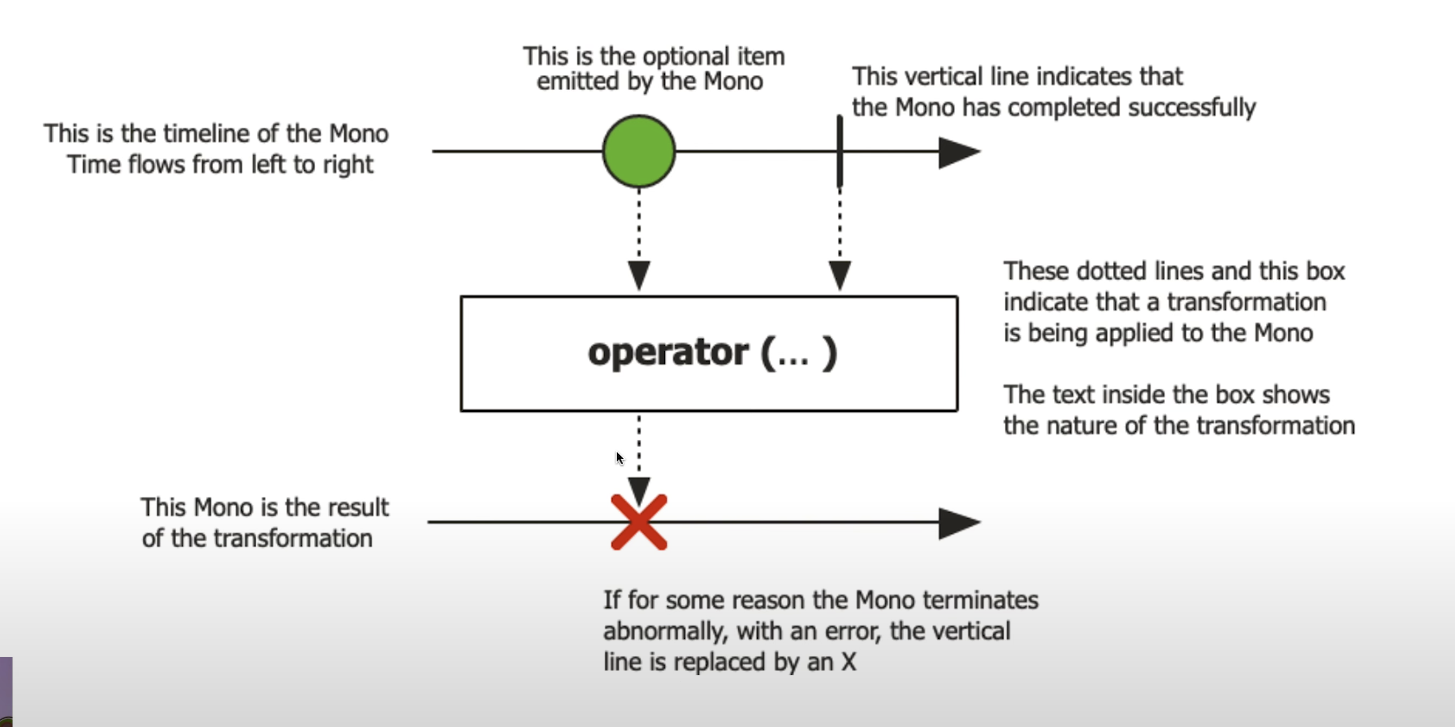Mono
Represents 0 to 1 elements

Instance methods
block
Convert from Mono<T> to T. Retrieve value of the Mono. For example:
public User monoToValue(Mono<User> userMono) {
return userMono.block();
}
@Test
void monoToValue_success() {
var user = blockingApp.monoToValue(Mono.just(new User("Austin")));
assertThat(user.username).isEqualTo("Austin");
}
defaultIfEmpty
If the Mono is empty then return a default value.
static Mono<User> emptyToDefault(Mono<User> user) {
return user.defaultIfEmpty(new User("default user"));
}
static void emptyToDefaultMain() {
emptyToDefault(Mono.empty()).subscribe(System.out::println); // default user
}
> Task :app:OtherOperationApp.main()
username: default user
firstname: null
lastName: null
Static methods
firstWithValue
Return the one that is faster will be returned.
static Mono<User> fasterUserMono(Mono<User> userMono1, Mono<User> userMono2) {
return Mono.firstWithValue(userMono1, userMono2);
}
static void fasterUserMonoMain() throws InterruptedException {
CountDownLatch countDownLatch = new CountDownLatch(1);
fasterUserMono(
Mono.just(new User("austin")).delayElement(Duration.ofMillis(100)),
Mono.just(new User("test2")).delayElement(Duration.ofMillis(50))
).doFinally((t) -> countDownLatch.countDown()).subscribe(System.out::println);
countDownLatch.await();
}
Will output the test2
> Task :app:OtherOperationApp.main()
username: test2
firstname: null
lastName: null
justOrEmpty
If it's null then return a Mono.empty() instead
static Mono<User> nullAwareUserToMono(User user) {
return Mono.justOrEmpty(user);
}
static void nullAwareUserToMonoMain() {
nullAwareUserToMono(null).subscribe(System.out::println); // should not print
nullAwareUserToMono(new User("austin")).subscribe(System.out::println); // should print
}
> Task :app:OtherOperationApp.main()
username: austin
firstname: null
lastName: null